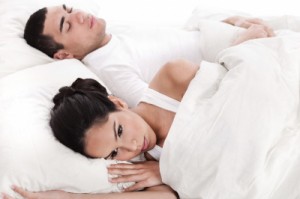
If you have trouble falling asleep at night, you’ve probably heard the usual sleep tips: Don’t drink caffeine in the afternoon or evening, don’t exercise an hour before bed and avoid computer games before hitting the hay.
But here are some ideas about how to have a good night’s sleep that you may not have thought of.
1. Make your bed in the morning. According to the National Sleep Foundation’s 2012 Bedroom Poll, respondents who make their beds every day or almost every day are more likely to say they get a good night’s sleep than those who don’t make their beds. It may be that feeling good about your bedroom leads to a good night’s sleep.
2. Clean your bedroom. About two-thirds of respondents rated having a clean bedroom as important to getting a good night’s sleep.
3. Change your sheets weekly. According to the survey, 78 percent of people agreed that they get a more comfortable night’s sleep on sheets with a fresh scent. Be sure to choose a detergent with a scent you like.
4. Don’t pile on the pillows. Two is the max. More people who use one or two pillows say the get a good night’s sleep compared to those who pile on three pillows.
5. Use an air purifier. These are especially helpful if you have allergies, but another reason to use an air purifier is for the white noise, which helps block out other noises that might wake you up. Using a room air conditioner or fan may also do the trick. Or if your air circulation is fine, get a white noise maker.
6. Ditch your bright alarm clock (and your night light). Studies have shown that sleeping with dim light, from a bright bedside alarm clock or even a night light can affect your sleep. About 21 percent of people sleep with night lights, according to the sleep survey. At night, our bodies churn out melatonin, the hormone that makes us sleepy and regulates our circadian rhythm. But with even small amounts of ambient light, the amount and timing of melatonin that’s released may be altered, possibly affecting how deeply you sleep and what time your body starts to wake up.
7. Turn the light down on your E-reader. More and more people are using electronic readers like a Nook or Kindle before bed, but there’s some evidence that the blue light emitted from the screen may affect melatonin. One recent study found that using an E-reader before bed delayed the release of melatonin by about an hour compared to reading a print book in dim light. Reading electronically also caused subjects to take an extra seven minutes longer on average to fall asleep. The older Kindle models that don’t have a built in light source would not affect melatonin, but the newer ones could.
8. Turn off your cell phone. Or put it on silent or vibrate mode. About 39 percent of people surveyed said they keep a cell phone in their bedroom and turned on at night. The constant dinging of texts, emails and alerts can interrupt your sleep.
9. Have a handful of nuts before bed. Nuts contain about the same amount of sleep inducing tryptophan as turkey. Plus they’re a healthy dose of protein and fiber.
Laurie Tarkan is an award-winning health journalist whose work appears in the New York Times, among other national magazines and websites. She has authored several health books, including "Perfect Hormone Balance for Fertility." Follow her on Twitter and Facebook.
0 comments:
Post a Comment